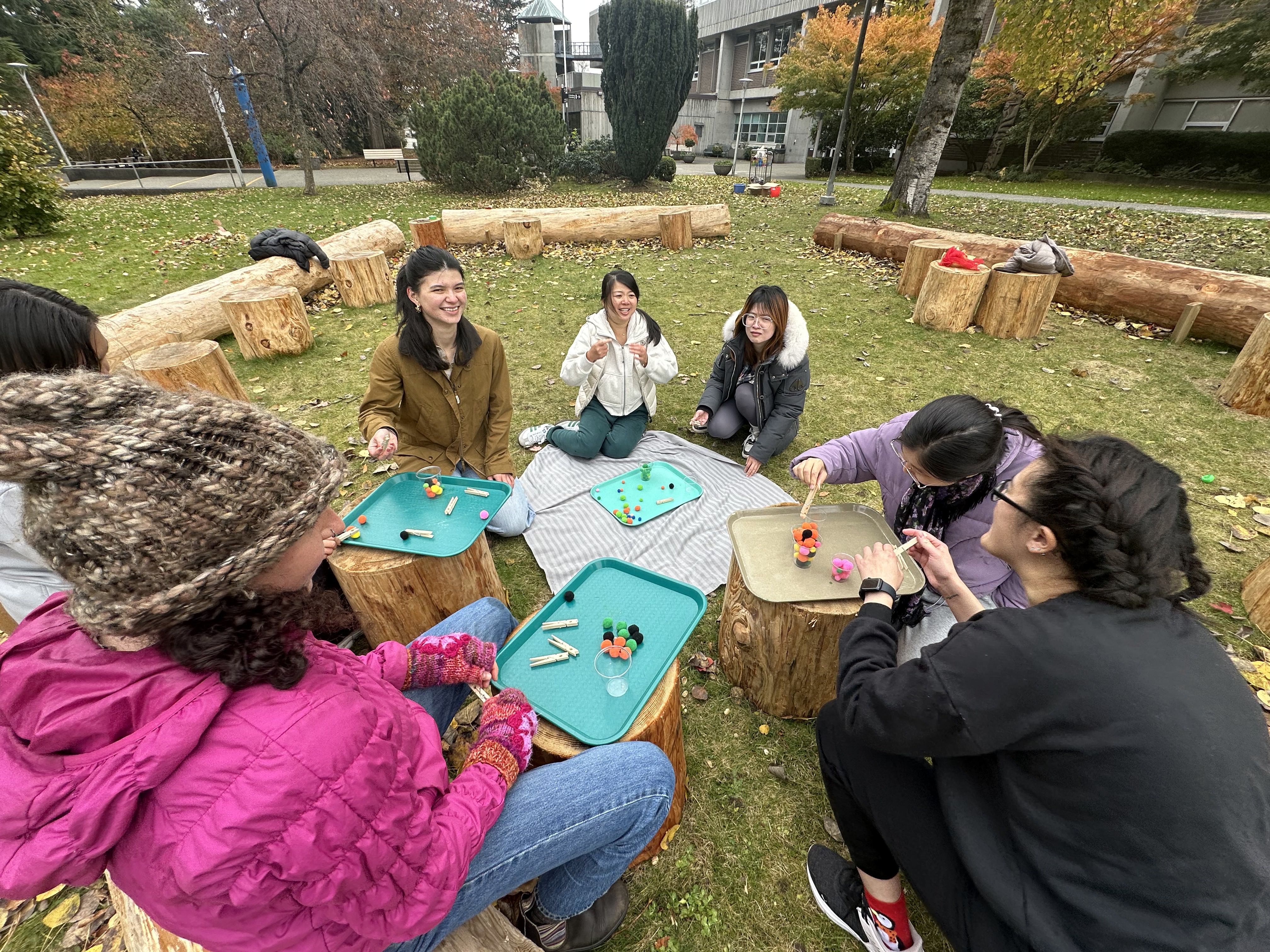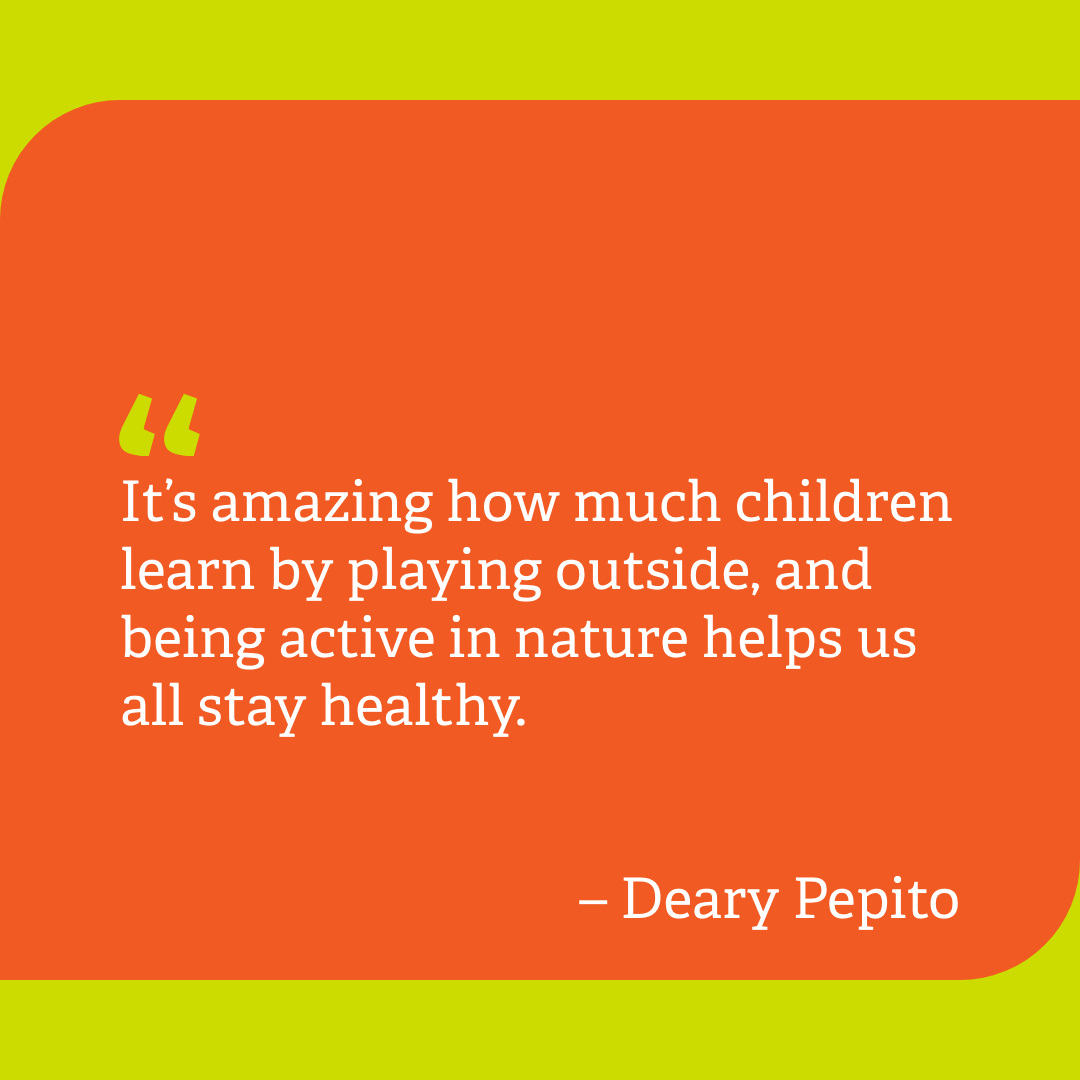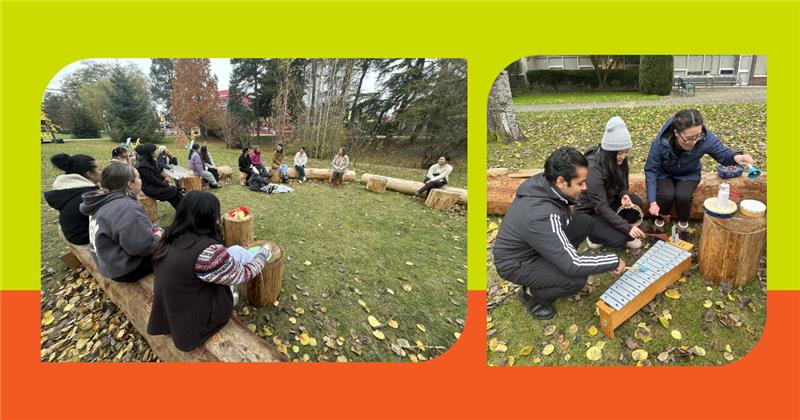Nov 12, 2024
The Early Childhood Education (ECE) program recently launched an outdoor classroom, supporting a shift toward experiential, place-based learning that connects students to nature. Research highlights the mental, physical, and emotional benefits of outdoor education, particularly for young children. Although currently a pilot project, the outdoor classroom has received positive feedback, with hopes to expand it campus-wide.
In recent years, outdoor classrooms have gained significant attention in educational spaces, offering a dynamic and nature-centered approach to learning. Langara College is bringing nature into learning with its new outdoor classroom, created to enhance the Early Childhood Education (ECE) program. This unique space promotes place-based and experiential learning that benefits both students and educators.
Why outdoor classrooms?
Research shows that outdoor learning environments improve mental, physical, and emotional well-being, especially for young children. Children who spend ample time outside are healthier, have stronger immune systems, and show greater curiosity and engagement in their surroundings. Outdoor classrooms also allow educators to create a less restrictive and more holistic learning experience where children can learn by interacting with the natural world. This setting fosters environmental stewardship and a profound connection to the land.
ECE instructor Carolyn Wing explains the outdoor classroom is a result of “Langara [being] part of a national research project led by Okanagan College and the YMCA of Greater Toronto to look at how early child education programs across the country could integrate outdoor learning, allowing students to develop a deeper appreciation for nature that they could pass on to the children they would one day teach.”

Langara’s approach to outdoor education is built around "place-based pedagogy," which emphasizes understanding one's environment and developing a meaningful connection to it. Instructor Amy Flanigan has taken a leading role in this initiative through her Foundations of Early Childhood Education course, encouraging students to select a favorite natural spot on campus and revisit it for reflection and creative projects. Even after the course ends, many students continue to visit their chosen spots, using them as places of comfort and connection.
Flanigan has observed a powerful impact this routine has on students.
Deep learning can happen with repeated revisits to the same natural space through reflection and observation.
– Amy Flanigan
Students not only gain comfort in outdoor settings but also cultivate a sense of relationship with the land – an experience that aligns with Indigenous perspectives on land and connection, which is especially significant given Langara’s location on the unceded traditional and present-day territory of the xʷməθkʷəy̓əm (Musqueam) People.
Fostering Indigenous perspectives and environmental stewardship.
Incorporating Indigenizing principles that were developed as part of a collaborative initiative in 2019 with a Musqueam community committee including special advisor Gail Sparrow and Lauren Mitchell, who is now an instructor in the program, is a central focus of Langara’s ECE program. For example, through the outdoor classroom, the ECE students start to appreciate the Indigenizing principle of land stewardship. This approach to education offers students a rich understanding of their role as caretakers of the land, promoting an environmental ethic that they will carry forward in their future careers.
This curriculum component supports students in becoming mindful educators who can pass on environmental values to young children. “Having an outdoor classroom lets us engage deeply with nature and prepares students to create similar spaces in their future careers,” says Wing.
Looking to the future.
One of the goals of Langara’s outdoor classroom is to prepare future educators to handle diverse outdoor environments confidently. Flanigan emphasizes the importance of being “comfortable with the uncomfortable,” encouraging her students to embrace Vancouver’s diverse weather by learning outdoors in rain or shine, helping them build confidence in varied settings. By experiencing outdoor conditions themselves, these future educators are better equipped to make outdoor learning enjoyable and engaging for children.
Recognizing that not all students may have access to weather-appropriate gear, Wing adds, “We're looking into grants to provide equipment, ensuring every student can fully participate.”
Currently a pilot project, Langara’s outdoor classroom has received enthusiastic support from students and faculty alike.. While primarily used by the ECE program, other departments can also utilize the space, with hopes to expand similar areas across campus.
Student voices on outdoor learning.
Term 1 ECE students share their thoughts on the outdoor classroom:

Embracing outdoor learning is a step toward a future where students and educators are more connected to the land, preparing Langara’s future teachers to inspire a generation of nature lovers. The outdoor classroom, located on the front lawn near the security office, is available to Langara’s community when ECE classes are not in session. Instructors can also book the space, though priority will be given to the ECE program.
Related stories:
How exercise can boost your academic success and mental health: A guide for Langara students
